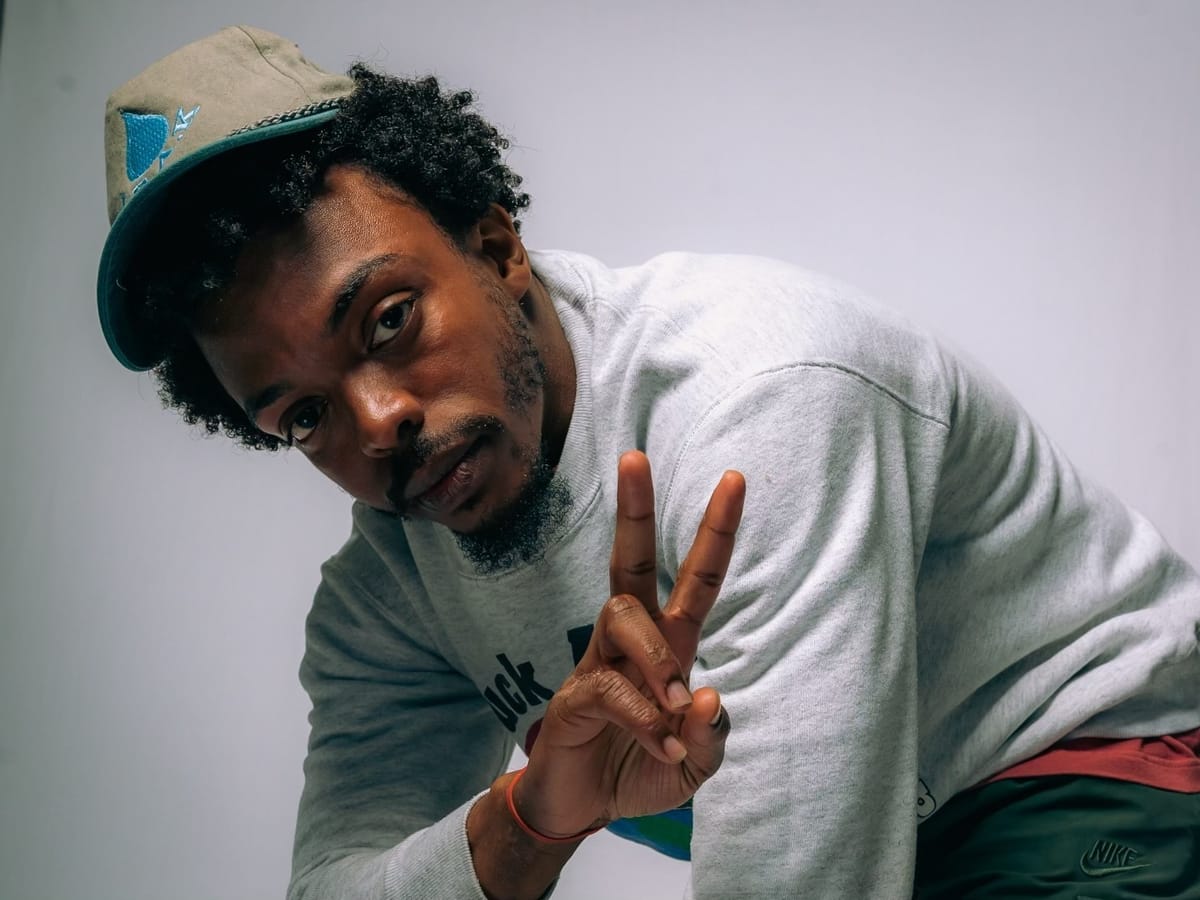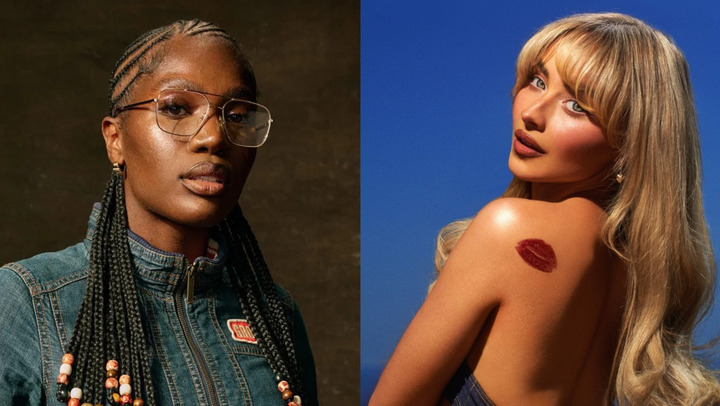The Journey Comes Full Circle
A feature of Nashville rapper, Brian Brown, as he celebrates 5 years of his critically acclaimed, Journey

Brian Brown celebrates the five year anniversary of his Journey album
LISTEN: only available on Soundcloud at the moment of writing
The crowd was stiff at first — they likely didn’t know what to expect. A rapper, not only performing, but headlining, at a quiet, swanky jazz bar in one of the most tourist-laden parts of the city? That’s damn near blasphemy. The murmur of the crowd, just warming up with drinks and cajun-esque food, came to hush as Brian Brown walked on stage. The clink of glasses and the quiet shuffle of servers diving between tightly packed tables, chairs, and couches added to the ambiance of the dimly lit venue that has cornered the market on true jazz music in Nashville.
Aided by Alex Murphy on the keys, Christian Kyle Burgs on drums, and Jackson Mayhall on upright bass (a trio that oft goes by the Murftones), the cruising melody of “Come On In,” the first track from Brian Brown’s Journey rode behind the brash opening lyric, “Close the door behind ya dawg, you letting flies in.” Despite that, the title, and that lyric, is inviting and perfectly revelatory on the semantics of southern communications.
The nerves were apparent, he said so himself — he had to smoke them off briefly before the show began. Though, they quickly evaporated into the ether, somewhere beyond the stage as the words seemed to spill from Brown’s mouth. This sense of urgency, of gravitas, even, took center stage as the tone of the evening was set with Brown’s lax, yet precise delivery.
The fashion of the show remained true to its source material. Journey is an album that drips in jazz, southern, and 90’s influence. The freedom and riffing of free spirit jazz was inflected deeply here as Brown would often toss in a freestyle, improvised melodies, and even let his ensemble breathe life into venue. You could almost hear the pieces click into place in these improvised sections as Brian Brown would find the pocket of the ensemble behind him.
For a rapper, the melodies were impressive and only aided by backup vocals from Grace Lee and Yours Truly Jai, who did the vocals on the album. The precision of Brown’s bars was measured with the smoothness of the night’s melodies that provided this innate flair — it added something so special to the intimate venue, particularly, “Stay,” one of the most melodic-heavy tracks. He described this track coyly, as a sort of relief from the seriousness of Journey, even the seriousness of heartbreak, hence the subject matter. A lighthearted romance doodad that felt right at home in a jazz bar over the soft keys lilting along the crevices of lovestruck melodies.
“Vanilla” was a standout from the first half of the show. It serves as an homage to Master P and the “Ice Cream Man” with one of the catchiest choruses you’ll hear: “Mr. Ice Cream Man, we’ve been waiting all day / Why you take so long to come back this way.” If this homage weren’t an indicator, Brown made it abundantly clear that he is staunchly southern. And that plays a huge role in the music he performs.
From the lazy drawl to the thumping speaker-busting bass, boom-baps, and, perhaps most importantly, the subject matter — when its not a straight up party, its usually a microscope on the fallacies of the south and commentary on wealth disparities and gentrification — Brown proudly boasts his heritage: “I’m from the south and I love being from the South.”
His roots sprawl the southeast, from his numbered days at Western Kentucky University, to his days in Chattanooga circa 2015, where he lived amongst a group known as The House Collective. Some might recognize this moniker as it birthed the careers of several artists and producers including, perhaps most prominently, Isaiah Rashad, Tiggi, Park Ave, Michael Da Vinci, and YGTUT among others.
Those days were defined by just getting by. He recalled those days in fond yet distant remembrance. “I’m cooking dinner for niggas, and writing raps to Journey […] it was times niggas hot water didn’t even work,” Brown recalled. “While it was, it was beautiful.” Though the times were relatively brief, they were crucial to not only Journey, but creation, in general.
Though the name Brian Brown seems to escape the fringes of this collective, he was an integral part of the work that manifested during this time period. In fact, Brown had two features scrapped from The Sun’s Tirade, what most consider to be Rashad’s best work. The first was on “Wat’s Wrong,” which would go on to feature TDE mates Kendrick Lamar and Zacari.
The latter was “Park,” which, in the studio version, still holds the Brian Brown influence. Check his soundcloud and you’ll find the verse that was supposed to be tacked onto that track and it fits seamlessly. Brown felt like this verse was his coming out party, that those sixteen bars were the gateway to something more. That opening verse, “If 16 was enough,” is admissive and almost prophetic. Despite the omission, Brown still has love for those days, the same way a divorced couple are still on good terms.
He moved to Atlanta within a couple of years, almost at the height of their rap scene’s ascension. In large part due to Ducko McFli, a fellow Nashvillian that took his talents to Atlanta around the same time and made a name for himself on the production side. In fact, Brown credits McFli as a crucial cog in the machine that is Nashville hip-hop: “Ducko McFli is one of the biggest catalyst of my career. He is one of the catalyst of Nashville hip-hop. […] The boy had his hand in a lot more shit than you realize.”
Those connections in Atlanta, were wide spread, and by proximity, even with Young Thug, largely before his explosion to fame, are all interconnected. Brown was supposed to open for Young Thug via a collaboration with McFli and a group called the Money Making Boys at a show in a now shuttered club called Anthem. Ultimately, the show fell through, with Thug’s recent arrest for reckless diving preventing his appearance. But the city’s brightest shined that night, holding a Young Thug “concert,” to make up for the disappointment.
Though his spiderweb weaves over four states, Brown’s heart, his very being is tied to the east side of the 615.
This air of contemplative humility is one of the most noticeable things you get when you interact with Brian. He admitted to me that he doesn’t herald himself as a role model by default; he lets his guard down, he’ll talk the sports parlays, drink, smoke, be cordial, more so than a lot of other local heroes.
Immediately after the show was over, he stepped out the front door of Rudy’s with a box of t-shirts and started selling to the crowd as they left and even the line for the next show that was to come. They showed him love, from one of his best friends dating back to his childhood, to Alex Murphy, and even strangers that had traveled from all over the country and happened to stumble upon that beautiful night. And Brown reciprocated it all. There were more thank you’s and gratitudes than anyone knew what to do with.
That selflessness, could be, in part, what holds Brown back from that extra step, that extra mile as far as the music industry goes. But in a sense, perhaps subconsciously, he knows that. “I don’t want to be Brian Brown if it’s at the means of my people,” he said. In a world so dedicated to being something you’re not, Brown stays true to himself, vulnerabilities and all.
The second half of his set proved that. Backed this time by AyyWillé, whose late arrival with the saxophone proved to be right on time, Brown opened with “The Release Pt. 2,” which he prefaced as the falling action of the album, a bump of his movie aficionado background. In a way, he is right, as this was the true second half of the album. But what Brown didn’t account for was the emotional climax of his set.
The newfound saxophone provided a depth and emotionality that wasn’t necessarily missing but wasn’t as prominent as the first half of the set. You could feel true sorrow and introspection. You could see through the laughing goofiness of the studio version and understand that it is a facade. A defense mechanism that is so entirely necessary over the course of this journey that has largely been defined by loss, the whine of the saxophone pained the chest of its listeners — we were no longer passive listeners, but active participants in the message that Brown had sown.
“Lost my aunt to some shit you only see in the movies / erase that clip out of my head / I call that dead or lost footage,” he croons, chokes out, over his ensemble. Brown told us how she was lost, and I won’t repeat it here, but is as devastating as you can imagine. He uttered those words still in disbelief, as if the words in that order didn’t even make sense. And still he powered through.
Five years, on and off, lead up to the release of Journey, though Brown argues it should’ve only been about two. Regardless, those five years housed and revealed more mortality than we ever expected leading up to 2020 with the world shutting down shortly thereafter with the pandemic lockdowns. Brown has lost many of his folks in the five year leading up to and the five years post-2020. Grievances that come with that are tied to his music in a multitude of ways.
The death of former NBA star and Brian Brown’s favorite basketball player seems to encapsulate the traumatic value of loss — again, that disbelief factor. We talked about the burden of his seemingly prophetic delivery. The words, “Seven days a week I go / Feel like Kobe with the fro,” from “Peace” was finished a week before his passing. The shock there almost determined the fate of Journey which was slated to release only a week later. The release date stuck, but Journey is mired in these little caveats that are so evergreen. It’s eery to think that not much has changed over the course of half a decade, but here we are.
To say that Journey has come full circle is an understatement. With seemingly another pandemic forming, another Trump presidency, divisive rhetoric at large, even by the president’s cabinet, hyper-capitalism at record heights, it almost feels hopeless. That’s what makes the personal growth of Brian Brown, the person, so important.
During his performance of “Peace,” solemnity grasped the air. It houses the most personal of reflections for Brown over the course of about two and a half minutes, almost like spoken word. It is filled with promises to his siblings, even to himself, to the future and the past. When he broke down in tears on stage, no one could blame him — this life is painful.
As the vocals broke into almost a full on prothletising, a woman in the back shouted out her church quips, “yes lord, preach.” Add in the layered, yet loose and brassy sax in the back, the rapture of emotion was almost unimaginable. This woman, that he later revealed he had never met before, hugged him towards the end of the song in front of the crowd, God, and all. Something everyone in that crowd wanted to do.
“[Life] is a roundabout, it’s a circle,” Brown reminded towards the end of our talk. Given the location of the venue, I thought it was especially poignant, you gotta hit to swing onto 8th Avenue where Rudy’s is tucked away. But the only way to get home is to keep going all the way around.
Rudy’s Jazz Room temporarily brought us back around to the temporal point in space where the Journey album culminated into its emotional peak, if only for just a moment and it was beautiful to see. “I’ve been circling that roundabout, I think I’m slowly but surely ‘bout to get off that exit where I should be okay,” he said, reflectively. And that’s all we can hope for.
Beyond, and in spite, of all the glitz and glamour of Broadway, the emphasis on country music, the grind and bustle of everyday life — rap, hip-hop, Black, lives on in the Nashville, Tennessee.
Peace.



Comments ()